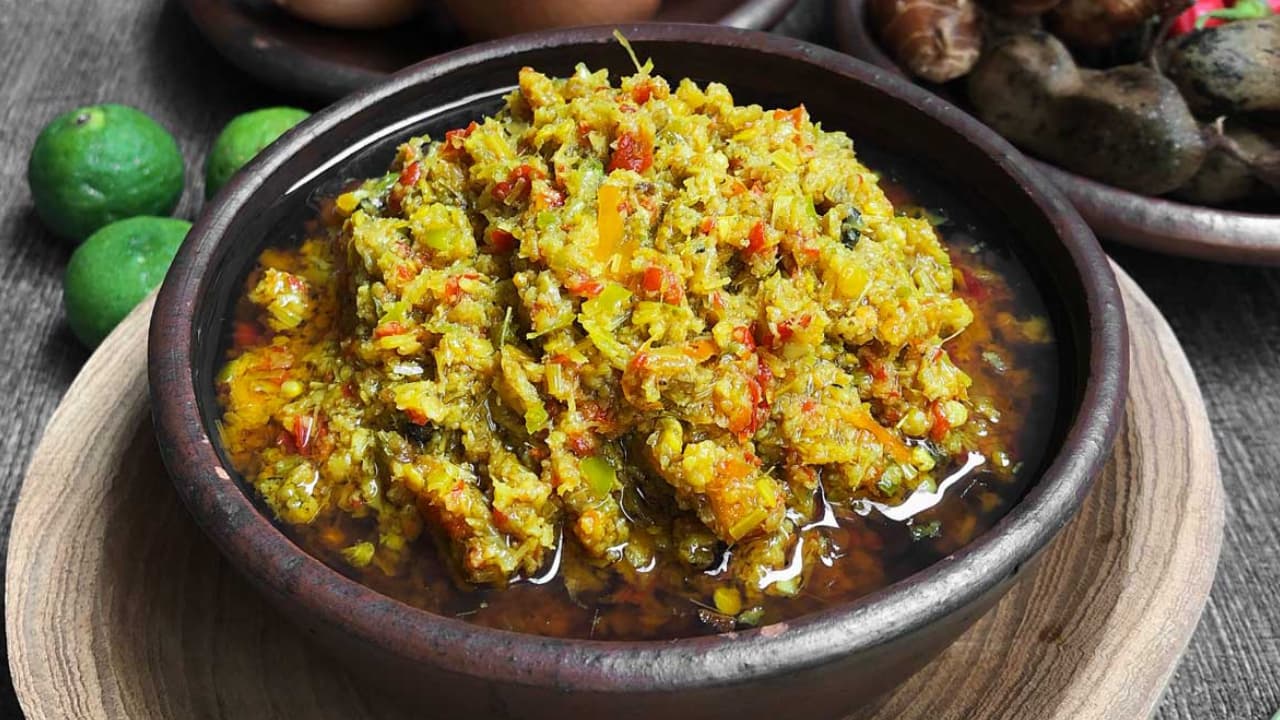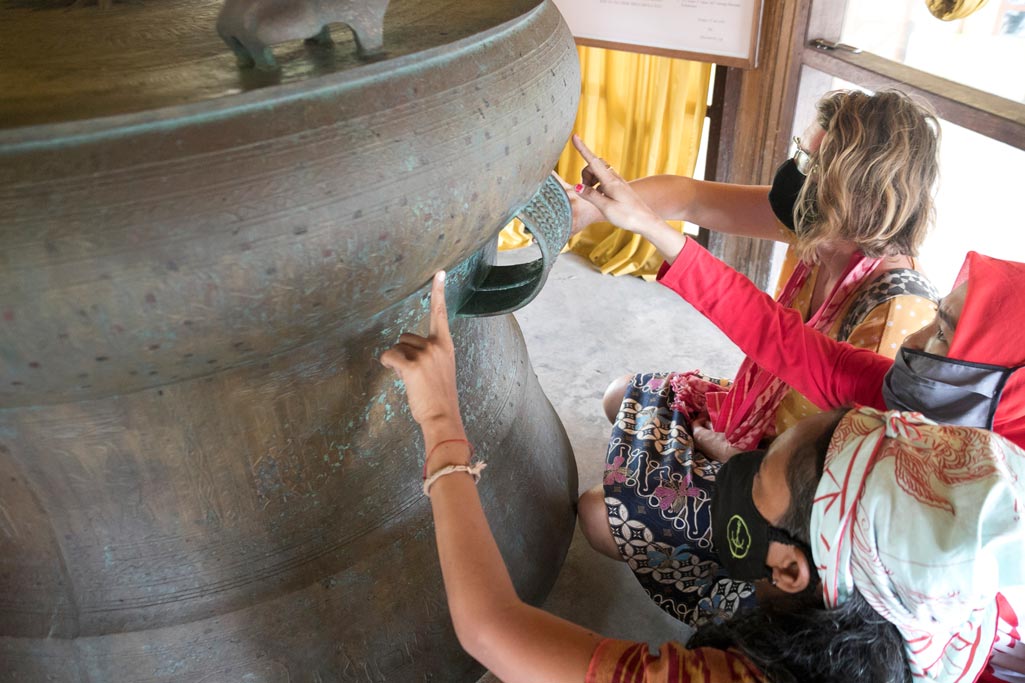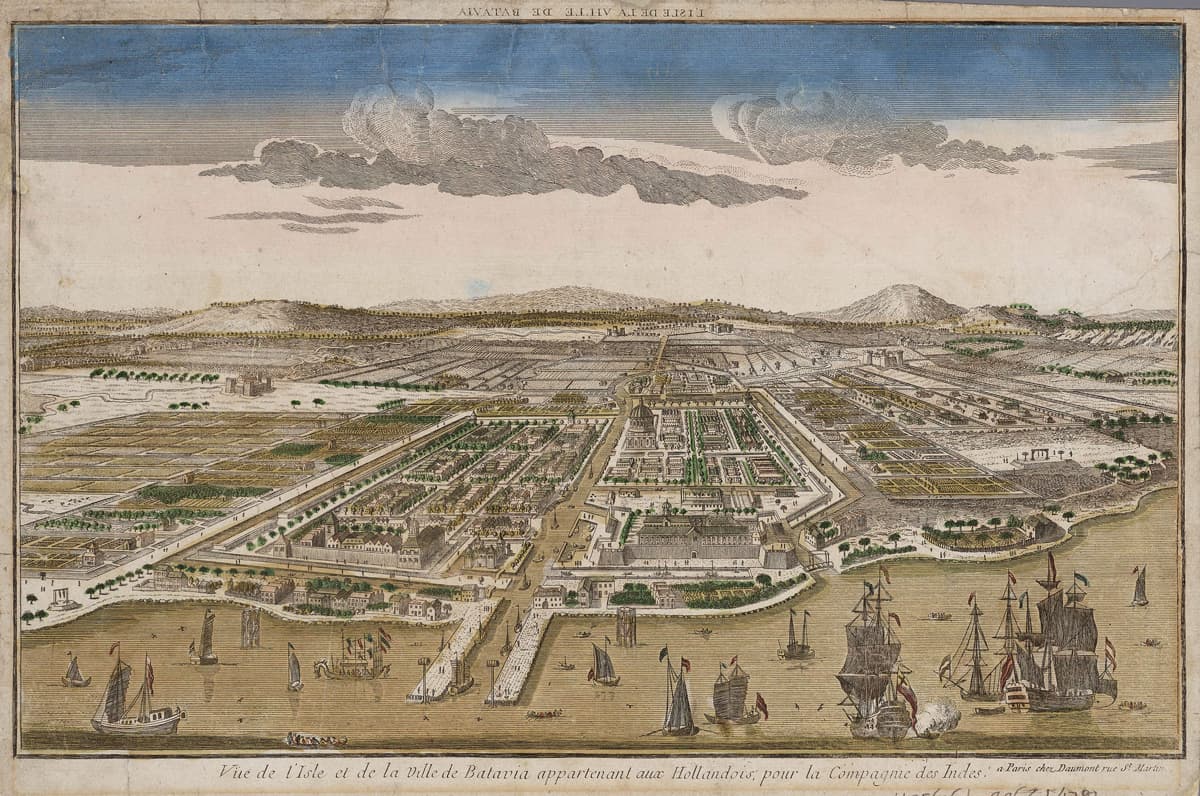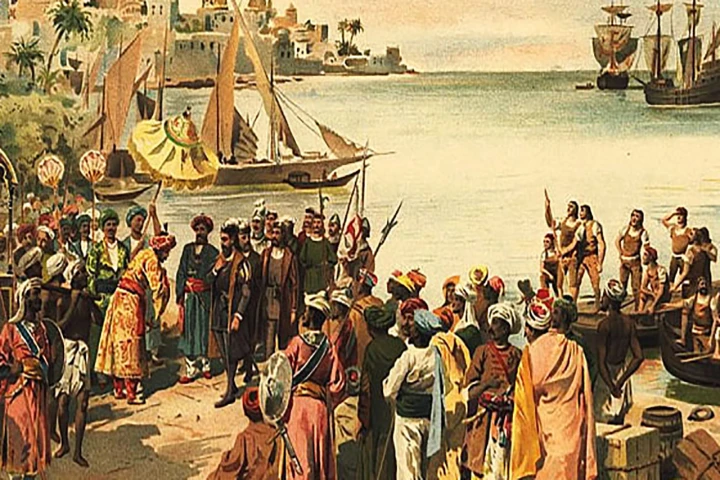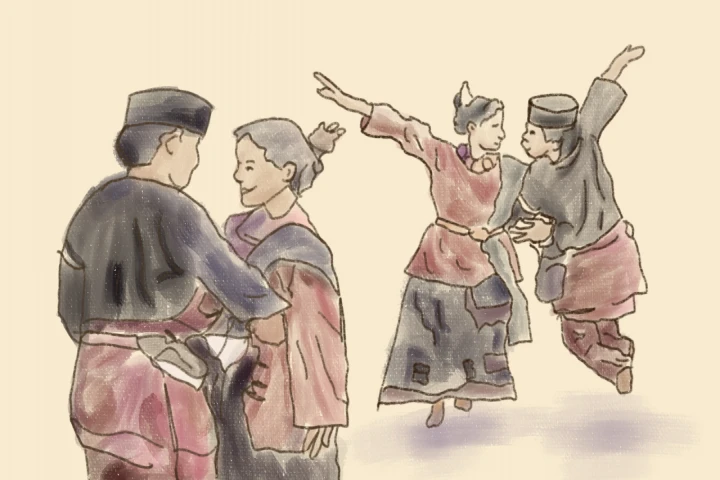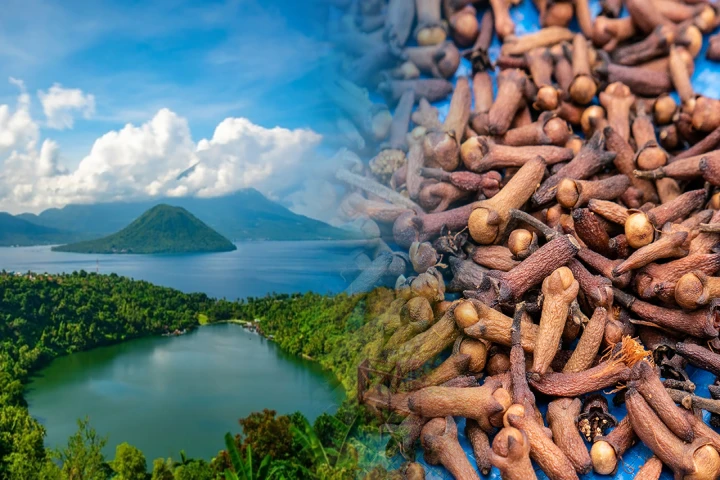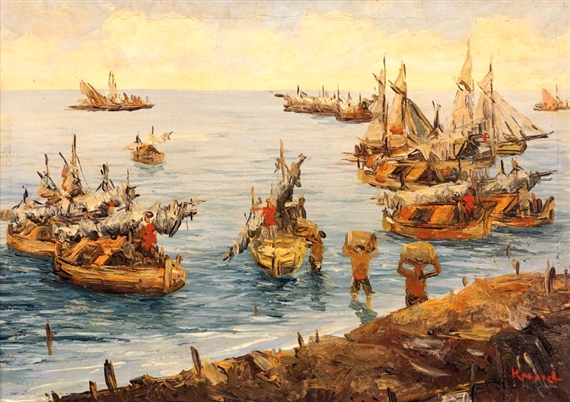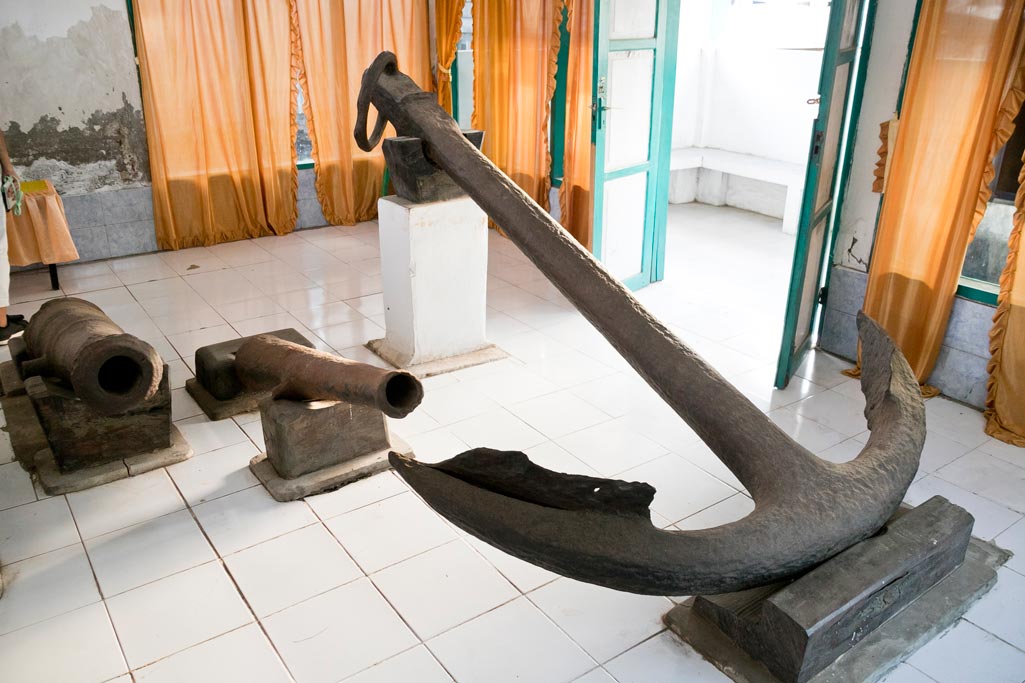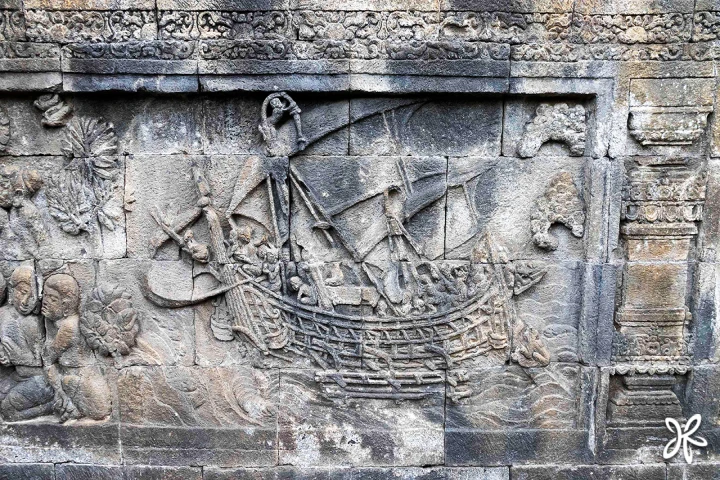
This time no one's looking for love
down between the sheds, the old houses, among the twittering
masts and rigging. A boat, a prau that will never sail again
puffs and snorts, thinking there's something it can catch
Although it doesn't connotatively talk about the harbor, the first stanza of Chairil Anwar's poem "Twilight at a Little Harbor" can picture what happened in Nusantara. A nation that once was big and glorious in the ocean, that has unfortunately lost its dominance entirely.
How could it happen? The port cities in Nusantara in the 15th-17th centuries, such as Aceh, Banten, Demak, Makassar, Ternate, Tidore, and Sumbawa that became the world trade hubs in the South, that the greatness was equal to the big trade cities in the North, like Amsterdam, Genoa, Venesia, and Antwerp, disappeared without a trace as if swallowed by a giant tsunami. The nation with the second-longest coast in the world after Canada, less than a century, had changed and "turned their back at sea", and made the land as a new orientation, pushed by the historical change, that reversed the cultural flow. The separation of the maritime world from culture also changed the nation, which has long supported nautical to become agrarian.
We can, of course, refer to colonialism brought by the Dutch as the culprit. They subdued the big ports and made them parts of their colony. "When the foreigners conquered the port cities on the coast, the indigenous people moved to the hinterland. Since then, they've lost contact with the outside world. The lost contact with the outside world coincided with the rupture of the continuity of a culture that was strong the whole time because of the spirit to seek knowledge and technology," to quote the Cultural Speech of 2014 by Hilmar Farid.
Meanwhile, when the VOC trade company underwent the hongi expedition, they didn't just circle the island and destroy the nutmeg plantations to guarantee the trade monopoly in Maluku but also took thousands of lives and property. The plants and economic life of the Bandanese, along with the culture that had guaranteed the people of Maluku to survive independently as a nautical community.
The amnesia periods for our history had begun. Forgetting the sea turned out to be more dangerous than forgetting land [being delirious]. The impact of oceanic amnesia can clearly be felt when we frequently translate the concept of Archipelagic State as negara kepulauan. Semantically, the term archipelago came from 2 Greek words, arkhi which means principle, and pelagos which means sea. The sea is the principle. Thus, we must read archipelago as "a sea sprinkled with islands" and not the opposite.
The difference of the definition can't only be seen as a mere semantic difference, but it is a matter of point of view and thus a cultural shifting. By mentioning the archipelagic state, the sea is viewed as a problem, a barrier, not as the primary focus or potential, and an entire social and cultural space that allows us to establish a new life, a new culture. On the contrary, with the term maritime country, our direction of view orientation refers to the sea as potency, a new living space. A translation error has an immense implication indeed.
We can find some clues about the futile struggle towards oceanic amnesia in our literary wealth. The sea is the "blue destination" according to Chairil Anwar. In his opinion, blue is a color to picture something far. Like a high mountain and vast ocean, the blue sea gives meaning to an unreachable space. That's it before the modern navigation tool was discovered, the sea boundaries were only uncountable waves, endless sky, and stars that fill the horizon. We never know what lies across, except the blue: blue destination, he said again.
Sutan Takdir Alisjahbana's "Menuju ke Laut" ["To the Sea"] poem metaphorically illustrates a journey to leave the past. A poem that began with the phrase "kami telah meninggalkan engkau" ["we have left thee"] seems to want to show that the sea is a new destination in the future that must soon be taken by leaving a life in "tenang tasik yang tiada beriak" ["the tranquil lake unrippled"]. A peaceful life in the embrace of customs that lull, change to a new, more dynamic life at sea. Borrowing Goenawan Mohamad's Sidelines, the sea embodies the future, leaving the tranquil land and bay far behind.
We also deserve to contemplate the philosopher Friedrich Wilhelm Nietzsche's proverb entitled In the Horizon of the Infinite, "We have left the land and have gone aboard ship! We have broken down the bridge behind us, nay, more, the land behind us! Well, little ship! look out! Beside thee is the ocean; it is true it does not always roar, and sometimes it spreads out like silk and Gold and a gentle reverie. But times will come when you wilt feel that it is infinite." Nietzsche pictured the sea as a future full of possibilities. Although it does not always promise serenity and tenderness as silk, the sea is our new world. Indeed, the sea is the future. The horizon of endless hope and freedom. The infinite vastness, unexplored depth. That's how philosophers and poets made the sea a metaphor for a future world, the form of all opportunities and possibilities. An antithesis from land and bay that is pictured as an ancient serenity that has expired, immersing and entangling the legs until it prevents us from moving to the new, more dynamic, and promising world. The sea, once again, embodies hope for a new life that soon casts the land to the past.
If the sea is the future, and land is the past, why does the opposite happen in our national life today? It seems that only a few people know the story of the Bugis sailors' bravery to explore half of the world–from Easter Island to Madagascar–using outrigger boats. Knowing that our ancestors came from two great kingdoms, like Srivijaya and Majapahit, that once dominated the sea.
More than that. What even crosses some city people's minds about the sea is a picture of backwardness. The form of backwardness compared to other modern life. So, our imagination about the sea was soon ambushed by the slum and poverty portrait of the fishing settlement. What is sadder is some of us are infected by the orientalism virus when seeing the nautical community wisdom like in Mandar and Bajo tribe as a form of primitive life. The sea can be a mere history. Then, what is the benefit of the greatness of oceanic history for a nation? A memorable pride? According to Michel Foucault, modern people until the 20th century were individuals who were obsessed with history. Their obsession with history (time) has made them tend to take other significant roles for granted. We witness philosophy and modern knowledge filled with great thoughts about "progress". From Hegel about human ratio evolution process, ratio superiority process opposing irrational forces (Comte), organism evolution process (Darwin), the birth process, the civilization growth and collapse (Spengler & Toynbee), until the class struggle (Marx), show that the idea of progress colored the typical thoughts of that era.
However, there was a significant change in viewing history in the middle of the century. Simultaneous with the more problematic objectivity in the epistemological area, the historical objectivity concept was also discussed. Although de facto played in the reconstruction area or imitated the past, history shifted to the productive construction area. Being weak in the objective claim made history become an activity to "create the past", although based on text and evidence. A process of intertextual narrative construction, interpretation of interpretation that is not simple, and the selection of events and characters assumed to be valuable are determined by the theoretical vision and particular interest. Today, history becomes an activity to interpret, arrange, and manage the past.
Fortunately, the 21st-century tendency brings us out from the ideological bend, abstract metaphysics, and scientific positivism. We move to a more concrete, dynamic, and complex experience. That’s why we need to listen to the advice from the postmodern thinker Edward Soja in the book Postmodern Geographies that said, “untuk manusia modern kesadaran ruang (geografis) sama pentingnya dengan kesadaran waktu (sejarah)” [“for modern humans the spatial (geographical) consciousness is as important as time (historical) consciousness”]. Following Soja's suggestion, we must catch the meaning clearly: let's see the benefit of the geographical space except for the historical advantage. Soja presents the Geographical Imagination completing the old imagination, Historical Imagination. We need to see something more real, the geographical environment where we live rather than continuously lean on the memories and great stories in the past.
History must be used creatively and contextually for the needs of the times. History must be used to maximize the process of mastering the geographical space. History must make us realize that we were once a nation that could maximize the mastery of the geographical space.
If the geographical benefits become the future orientation, let's leave the historical science for a while, and we enter the geographic discipline area, especially a field called anthropogeography, that later became more popular with Geopolitics. Geopolitics is a consciousness of a space concept in political life concerning the importance of utilizing the geographical space. A geopolitics expert Andrew Gyorgy said, "Every nation has a space conception, that is an idea bout the possible limits of territorial dominion. The decay of every state is result of declining space conception."
Geography always plays a significant role in human life. Geography shapes identity, character, and nation-states' history; geography also helps and prevents economic, social, and political progress; geography also plays a significant role in international relations. Meanwhile, geopolitics is a study about the influence of geographical factors on state behavior, including how the location, climate, natural resources, population, and physical condition determine a particular country's foreign policy choice and its position in the state hierarchy.
The national territory of a country is the fundamental natural asset that must be used to support the nation's life. The technological advancement, decrease of natural resources, and population increase have made the world space relatively narrower. That's why every nation must try to make their national territory a living space that can support the nation's needs as optimally as possible. So is with the sea. The sea can be the next option; the sea can be the new life source.
Since the second world war ended, the expansion danger from other countries got smaller. The geopolitical conception changed. Our geopolitical concept that tended to be defensive this whole time more focused its attention on the defense of sovereignty from the outside attack must be shifted to a creative activity that can maximize the sea potential for prosperity. The sea must be seen as an opportunity and potential rather than an obstacle. Combining it with wawasan nusantara [archipelago insight] that we have.
Modern geopolitics no longer focuses on expanding power and territory colonization strategies; instead, technological advancement. The political-security affair shifted to economic and cultural issues. It is still difficult for Indonesia to play a significant role in the global landscape.
It seems that there is no other option other than utilizing all potentials that we have. For example, through the reconstruction and revitalization efforts of the nautical potentials that we have. Why nautical? Because the sea is the comparative superiority that we obviously have compared to other nations in the world. Other nations that aren't nautical can optimize their sea potential and optimize the historical and geographical potentials of our nautical life.
We're lucky to have a long historical trace of nautical life that is well recorded in the form of the Spice Routes. The Spice Routes is evidence of our nation's significant role as a nautical nation in the world trade route that is very influential on the world's future. The spice trade has also connected the world from various wind directions. It has a more significant influence on the shipping technology and trade revolution rather than the Silk Road or other routes. It isn't possible that Silk and Gold merely triggered the advancement of the shipping and trade world. Silk and Gold weren't primary needs. Spice, in this position, was more needed for culinary, medicines, cosmetics, preservatives and proved to have revolutionized the way of life, even creating Colonialism and Imperialism that had changed the world geopolitical map.
It could therefore be said that reconstruction and revitalization of nautical potential are parallel with the Spice Routes reconstruction and revitalization efforts. The Spice Routes concept is intertwined with the powerful historical, geographical, economic, and cultural aspects.
One of them is the production of knowledge about the roles of Nusantara people, historical facts, and imagination for various groups. For this imagination, Paul Ricoeur divided it into two levels: First, Reproductive Imagination, which is an imagination that is established by bringing back memories and the glorious time in the past. Second, it is called Productive Imagination, a creative imagination that brings back a picture of the future that never exists and never has been imagined before.
It can be said that the first level of imagination is our pride to have once become a nautical nation. The past romance often becomes a strong reason to realize. However, this imagination soon lost its charm. The song "Nenek Moyangku Seorang Pelaut" ["My Ancestor Was a Sailor"], doesn't necessarily make the descendants want to become sailors. It simply tells us the origin, potential, and talent we have. When the first level of imagination decreases effectiveness, the second level of imagination, called productive imagination, needs to be presented. That's why various historical, archaeological, and anthropological research is not enough at the conclusion "we ever" but must be developed into "we can".
Proofing that our nation was once glorious at sea is not enough to establish the consciousness that we can and need to master only seamanship. The Productive Imagination is needed when the stories of the past greatness can't give an answer and must be changed into a lure about the future, which consists of a horizon of expectation. The messianic promises about a great nation.
It is indeed not easy to casually change and reverse the land culture we live in for years. We need concrete efforts to make the sea as a new cultural space, the new production basis. Making the sea as a production basis will automatically change the consciousness superstructure of the community.
In this case, the Spice Routes revitalization becomes important. Reviving the Spice Routes is obviously related to the geographic and economic utilization, from replanting various kinds of spices that become the leading product, to the reactivated historical ports. Ships can be the backbone of the trade traffic among islands. The abundant spices are processed to become high-quality exported products. Continuously innovating with spices and their cultivation.
In fact, reestablishing the glory of Spice Routes is a long-term planned effort. With its myriad external benefits, we also renew our Indonesianness that has always been inferior to become relevant and contextual with the needs of the times in the middle of the vortex of great change in the world.
The Spice Routes must be seen as a cultural route. A route that in its history caused various cultural interactions from many nations in the world, the spread of religion, education, knowledge exchange, art, language, shipping technology, and political interest. This route contributed to establishing Indonesian culture and identity like today–that is plural. The Spice Routes strengthens the Indonesian bond as a nation with cultural, traditional, language, religion, and ethnic diversity. By reconstructing and revitalizing the Spice Routes, we also strengthen the Indonesian bond that has been filled with intolerance discourse in the last days because of the strengthening of primordial sentiment.
Many efforts have been made for it. However, once again, establishing nautical culture through the Spice Routes reconstruction and revitalization is a strategic choice and the nation's challenge for the future. The ups and downs of the nation will depend on our ability to manage and develop the sea, and it means that it will impact the success of realizing the Indonesian dream to become the global maritime axis through the Spice Routes program. Because nautical culture is our origin with all future possibilities and opportunities. Like what we have read throughout the writing: Frankly, the Spice Routes is our past and future.
_________
The article is the featured winner’s work of the Spice Routes writing competition 2021. The article has gone through an editing process for publication on this page.
_________
Andre Donas, Writer and Cultural Activist, the member of Perkumpulan Luar Kotak.
Editor: Doni Ahmadi
Translator: Dhiani P.
Image: Redaksi Jalur Rempah's Documentation



